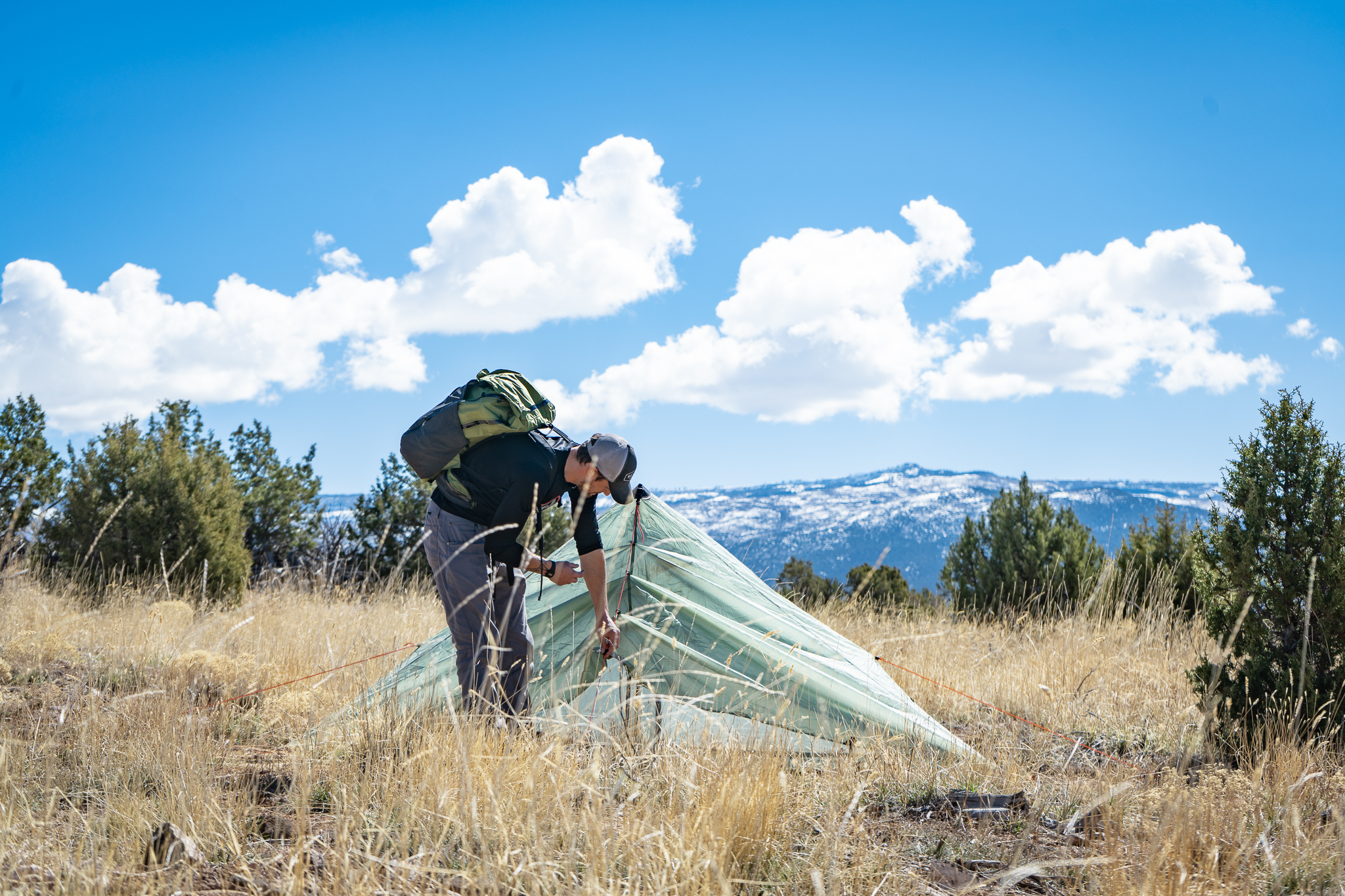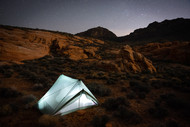The Ultralight Pursuit: How Much Should a Backpacking Tent Weigh?
Posted by Ryan Sapena on 2nd May 2024
The ultralight revolution in backpacking has become something that every backpacker has participated in whether they realize it or not (which is a good thing for your back and legs). Gear manufacturers have found themselves in an arms race and even pieces of gear that are not considered “ultralight” are still much lighter than they were 30 years ago.
New materials and innovative concepts have helped make the hike into your favorite spot much less exerting.
Picking the right tent can reduce the weight that you are carrying by a considerable amount. With so many backpacking tents available now, one has to wonder… How much should a backpacking tent weigh? Let's dive into the considerations.
Finding a tent that is juuusst right:
Just like Goldilocks and her stint of breaking and entering in order to find the perfect porridge, finding the right weight for your backpacking tent is about balance. Too heavy, and it becomes a burden; too light, and it may compromise on comfort or durability. You also have to consider your own comfort.
Going with a floorless shelter like the Silex, will eliminate a lot of weight, as long as you can deal with sleeping on the dirt. Materials like silpoly or dyneema (more on this later) may be a little lighter than sil nylon but in our findings you do sacrifice durability and wind resistance.
What is an Ultralight Tent?:
In recent years, ultralight backpacking has gained immense popularity and you can see why. The U.L. movement’s supporters see the benefits of shedding as much weight as possible in order to reduce fatigue and simplify your camping set up. A true ultralight tent weighing less  than 2 pounds is often ideal as ultralight backpackers typically shoot for a base weight around 10 lbs.
than 2 pounds is often ideal as ultralight backpackers typically shoot for a base weight around 10 lbs.
Many of these shelters that hit that weight are considered trekking pole tents. This means that the user can use their hiking poles as the center poles and main structure for the shelter, which eliminates the weight of carrying the typical aluminum cross sections for the tent.
Fabric Choices:
While ultralight tents do offer superb weight savings, they may sacrifice on space, durability, or weather resistance. The type of fabric that the tent is made of will be one of the biggest factors in what it weighs. Dyneema Composite Fabric (DCF) is lightweight but can have a much shorter lifespan than other fabrics. It is also not easy on the wallet. Silpoly is known to have less stretch than Silnylon and is typically cheaper. Silpoly tents are not as reliable in bad weather but work well as three season tents.

Silnylon is the most durable of all of the lightweight tent materials but can get some sag when it gets wet. Consider your destination and expected conditions. A lightweight tent with a functional balance between weight and performance might be your best bet.
Capacity Matters:
Solo backpackers have the luxury of choosing minimalistic one-person tents, which can weigh less than a pound. However, if you're trekking with a partner or a group, a slightly heavier tent with more space might be necessary. Most backpacking tents incorporate some sort of vestibule to store gear so that you don’t have to share your tents with wet shoes. Tent companies all rate their shelters a little differently so not all 2 person tents have the same amount of space.
Look at the square footage of the sleeping area. Most backpacking sleeping pads are around 20 inches wide and 72 inches long and take up around 10 square ft. By doing some simple math, you can get a good idea on what kind of space you are working with before purchasing a shelter.
Seasonal Considerations:
You may have come across tents labeled “4 season” or “3 season”. 4 season shelters are typically

heavier than 3 season shelters. 4 season tents have elements designed to minimize the effect of condensation, wind and snow, whereas 3 season shelters are typically lighter and less feature filled. The weight of your tent can vary significantly based upon this rating. If you plan on doing more backpacking in the shoulder seasons and into the winter, you can expect to carry a little bit more weight in your sleep system.
Personal Preferences: Ultimately, the ideal weight of your backpacking tent is a subjective matter. Some people prioritize weight savings above all else, while others may value comfort and reliability. The act of switching to a lighter shelter is a very relative thing. If you have been lugging around an old two person half dome that weighs 7 lbs, you can switch to something like our Guardian 2p XL and a titanium wood stove and still save weight. However, if you’re looking to switch from something that is already less than 3 lbs. you may have to fork over a good chunk of change for a premium material in order to save weight.
Consider your own preferences, experience level, and the demands of your adventure when choosing a tent.
Testing and Experience:
As with all gear, before you get out into the backcountry, it's essential to field test your tent in various conditions. Spend a night or two camping in your backyard or at a local piece of public ground.
See how your shelter does with condensation, throw your bag and pad in the tent to make sure you have enough room to be comfortable, throw it in your pack to see how well it fits with the rest of your gear. Real-world experience will provide valuable insights into whether the weight of your tent meets your expectations.
In conclusion, while true ultralight tents offer remarkable weight savings, they may not be suitable for every adventure or your budget. Consider the demands of your trip, the season and what weather you are expecting, and your own comfort when selecting a tent. If you are truly a 4 season user that is going to use this shelter in all different ways, get something that is suited for the majority of your trips. Remember, the best backpacking tent is not necessarily the newest and lightest one, but is rather the one that allows you to enjoy your trips as much as you can.
…